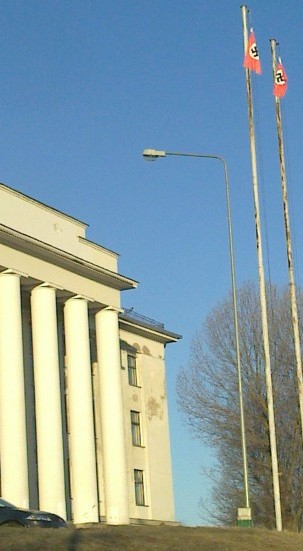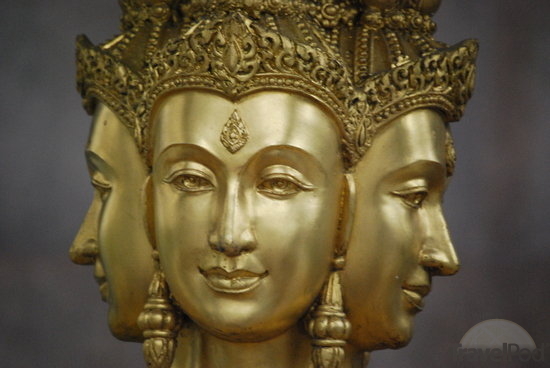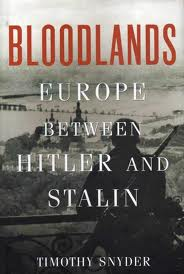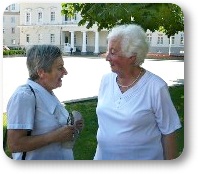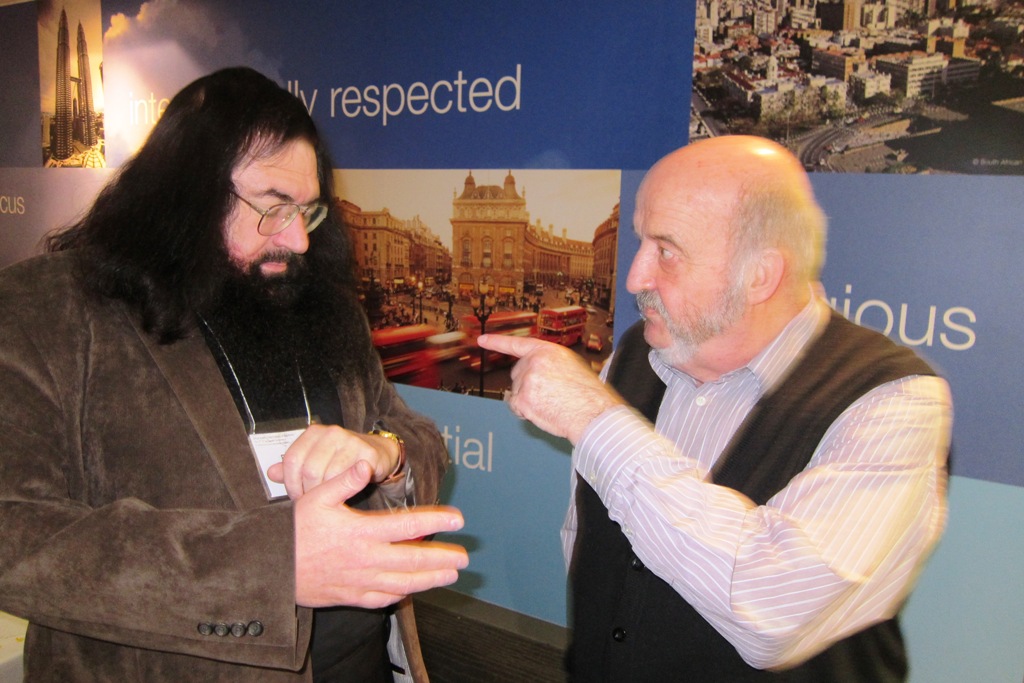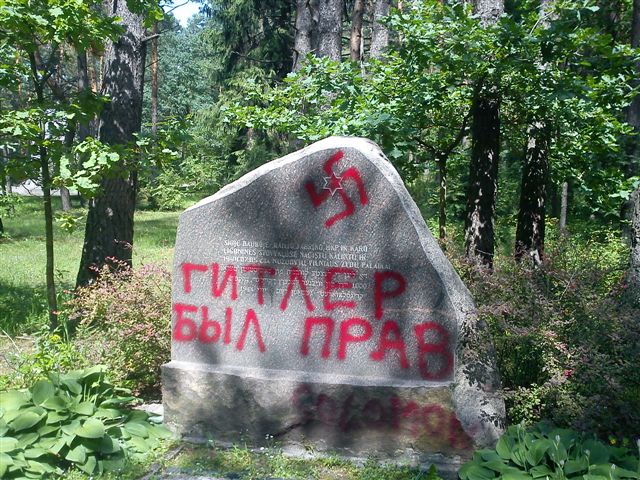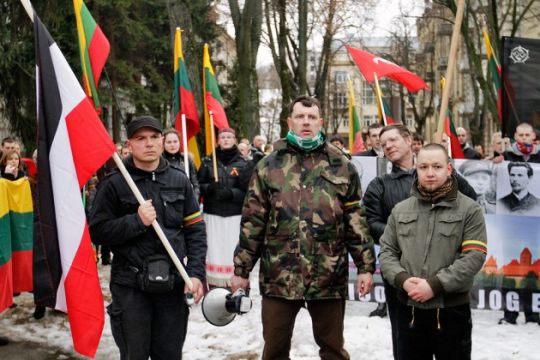O P I N I O N
by Milan Chersonski
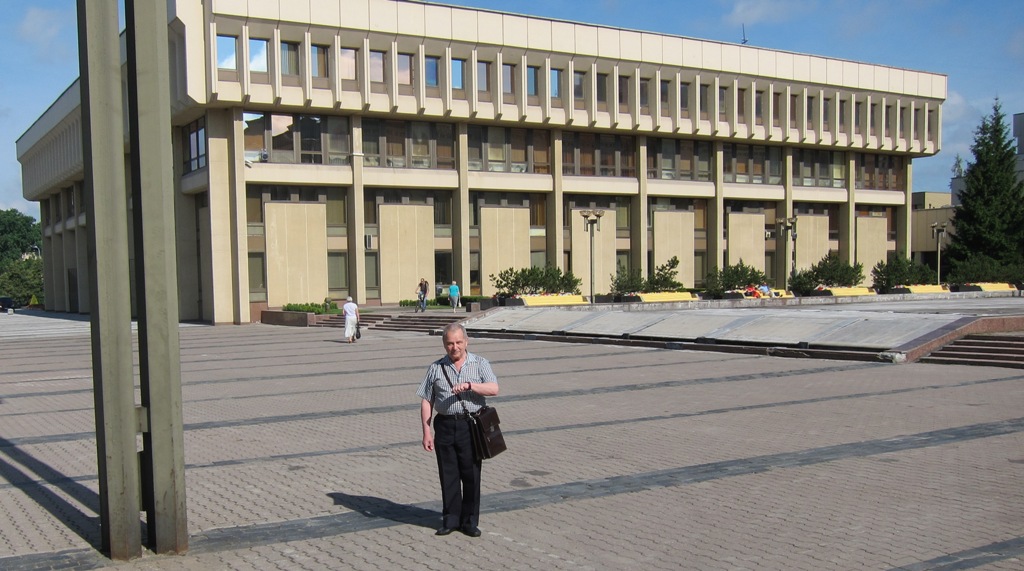
Milan Chersonski at the Lithuanian Parliament. From 1979 to 1999 Chersonski directed the Yiddish Amateur Theater in Vilnius, Lithuania. He worked in various capacities at the quadrilingual (English-Lithuanian-Russian-Yiddish) newspaper Jerusalem of Lithuania, publication of The Jewish Community of Lithuania, from its founding in 1989 until the paper was closed in 2011. He was its editor-in-chief from 1999 to 2011. He is now a senior analyst at DefendingHistory.com and contributes to various publications.
On September 28th 2010, the Parliament of Lithuania announced that 2011 would be the Year of Commemoration of Battles for Freedom and Great Losses. This mysterious name of some sort of anniversary appeared exactly a week after the same year, 2011, was declared the Year of Commemorating the Genocide of Lithuanian Jews. The Jewish Community of Lithuania reacted without delay to the ‘dual track’, apartheidized commemorations.
Now which “battles for freedom” are they talking about in the resolution? What sort of great losses? The resolution does not say specifically. Yes, Lithuanians valiantly rebelled for freedom in 1794, and in 1831, as well as in 1863, and then there were serious demonstrations on behalf of freedom in 1904-1905, and then there were the battles from 1918 to 1920 for the independence and borders of the newly founded state.
But it is impossible to understand exactly which events and which dates they now had in mind from the text of Lithuanian parliamentary resolution no. XI-1038 of September 28th 2010. And this is probably no accident, as shown by the subsequent actions of the Lithuanian government and leading organizations here.
Continue reading
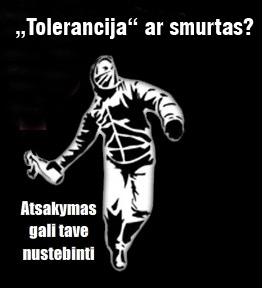 A far right organization in Lithuania
A far right organization in Lithuania 
